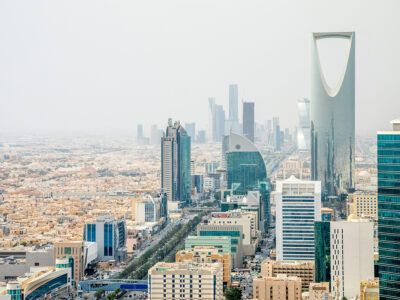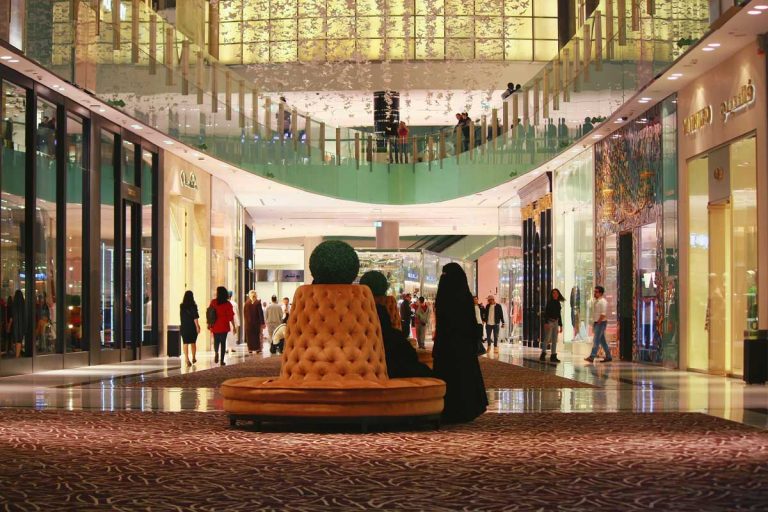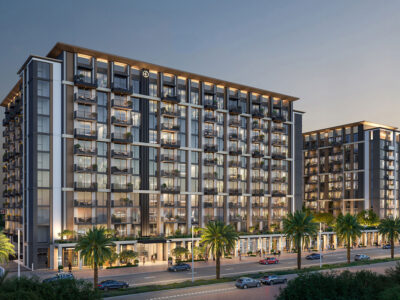Dubai has a long and prosperous relationship with the retail industry. From the emirate’s history as a regional trading hub to its globally renowned shopping malls, retail is one of our most valued sectors. The city’s Dubai Mall was recently labelled ‘the most visited place on earth’ after attracting a record 105 million visitors during 2023, underlining the significance of the industry’s economic contribution.
Despite this remarkable achievement, it hasn’t always been smooth sailing. The sector has had to overcome some of the biggest challenges of the past decade including shifts in customer behaviour, uncertainty in global supply chains, and fluctuations in consumer spending, together with the impact of restrictions during the pandemic period.
Throughout it all, Dubai’s retail sector endured and is now positively thriving. According to Majid Al Futtaim’s ‘State of the UAE Retail Economy’ report, consumer spending achieved year-over-year growth of 13% in 2023, propelled by a 14% increase in retail spending. The industry has become so accustomed to rapid changes that it takes them in its stride, adapting and evolving to transform challenges into opportunities.
This agility has established Dubai as a global centre for innovative retail concepts that embrace sustainability and digitalisation. Many of these work in both a customer-facing and ‘behind-the-scenes’ capacity to create better experiences for retailers and consumers. Self-service checkouts, for instance, ensure a smoother in-store flow, while leveraging AI to maintain optimal stock levels helps improve product availability for customers and reduce wastage for retailers.
Data-driven insights are increasingly key for retailers to understand the preferences of their customers and adapt to their changing needs. AI analysis has enabled the processing of vast amounts of data to be quicker and automated. This allows for an omnichannel approach that pulls data from more sources than ever before.
Retailers can now combine in-store data with online and social media insights, linking the physical and digital experience to create a seamless and bespoke customer journey. This drives hyper-personalisation for more efficient and effective marketing, leading to increased spending and enhanced customer loyalty.
Perhaps the single biggest disruption to the way we shop has been the rise of e-commerce. However, online purchases still only account for 11.4% of all retail sales in the UAE, indicating there is still more of a shift to come. The emergence of social commerce on platforms such as TikTok and Instagram now enables customers to purchase directly from ads and content, allowing brands to reach new customers with precision targeting.
As e-commerce continues to grow, retailers have an opportunity to differentiate ‘bricks and mortar’ from ‘clicks and mortar’ by focusing on the experience in-person shopping offers, particularly for high-end goods. Experiential retail allows brands to showcase their personalities in a physical setting and create elevated consumer experiences that go beyond mere transactions. Augmented reality and virtual reality can also be leveraged, using omnichannel integration to help customers visualise potential purchases.
With increases in consumerism, there is also a need to balance consumption with sustainability. The UAE has witnessed a growing focus in this area, driven by evolving customer preferences and heightened by the UAE’s successful hosting of COP28 last year. Retail is no different, and there has been a rise in second-hand purchases and rentals – particularly in luxury categories where goods can hold, and even increase, in value. In other categories, many consumers are happy to pay a premium for products that align with their values such as organic, handcrafted, or locally sourced goods.
The retail industry remains a core pillar of Dubai’s economy and is one of the most attractive sectors among investors. As the city gears up to host the 2024 edition of The Retail Summit – one of the most significant global events for the industry that is set to bring leading brands from around the world to the emirate – Dubai Chambers remains steadfast in its commitment to supporting the sector’s long-term success.
Trends may come and go, but one thing is certain – retail will continue to play a crucial role in driving sustainable growth to unlock the ambitions of the Dubai Economic Agenda (D33) and cement the emirate’s position as a leading global hub for business and trade.









